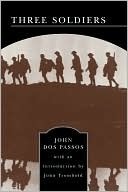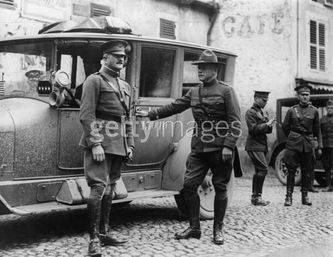What do you think?
Rate this book


430 pages, Paperback
First published September 1, 1921

They passed the leafless gardens of the Tuileries on one side, and the great inner courts of the Louvre, with their purple mansard roofs and their high chimneys on the other, and saw for a second the river, dull jade green, and the plane trees splotched with brown and cream color along the quais, before they were lost in the narrow brownish-grey streets of the old quarters.I did not especially like his characters, although likability isn't a requirement for me, but the characterizations might have been better. The prose wasn't great, but I've read worse and I expect he got better. If you're looking for action, look elsewhere, because dos Passos' enemy in this one are the non-coms and officers. This is my first by the author, and I'll probably try at least one more, as this is one of his earliest works. Three stars, but nearer two than four.